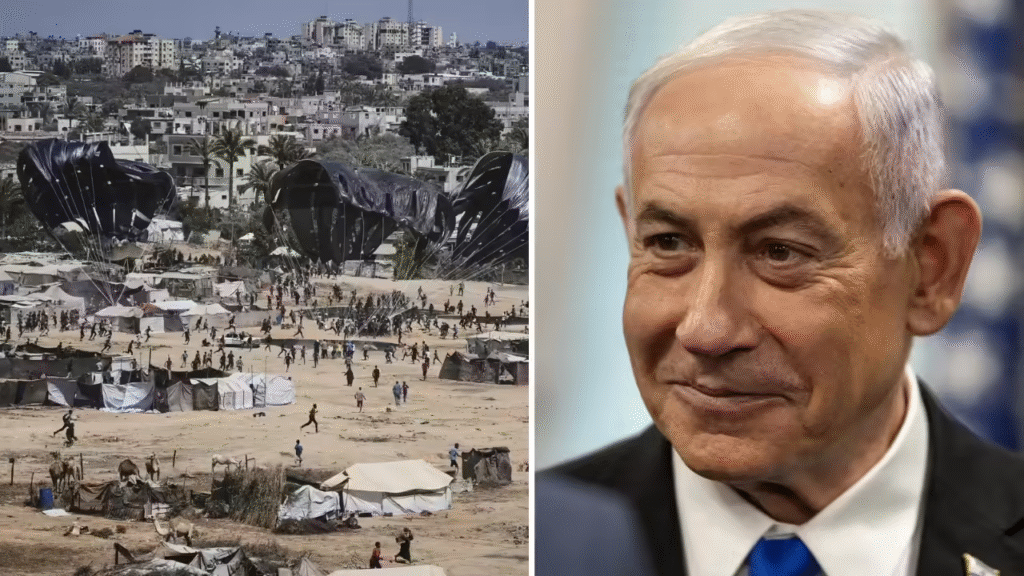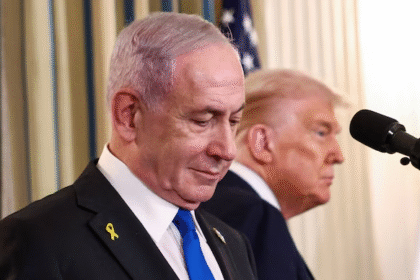This Week in Explainers: 5 Key Reasons Israel Plans to Seize Gaza City Despite Global Calls to End War
Discover 5 key reasons why Israel is pushing to seize Gaza City despite mounting global pressure to end the war. A deep dive into strategy, politics, and security concerns
Israel is planning a military escalation in Gaza. The country has decided to seize control of Gaza City, a densely populated urban centre, despite domestic and international pressure.
United States President Donald Trump’s 25 per cent tariffs on India have come into effect. He has also threatened to impose an additional 25 per cent tax on Indian goods as a penalty on New Delhi for buying Russian oil. However, it is not just India, the world will be singed from the high tariffs on India.
The US has sped up the space race. Nasa has decided to fast-track efforts to put a nuclear reactor on the Moon, with a goal to do it in the next five years.

Here’s all this and more in our weekly roundup from around the world.
Israel Prime Minister Benjamin Netanyahu has called on Israeli forces to seize control of Gaza City, which has already faced the brunt of the country’s repeated bombings and ground incursions since the Hamas war began in October 2023. This comes even as pressure on Israel grows to reach a ceasefire in Gaza, as the Palestinian population is on the brink of a famine.
Netanyahu’s proposed strategy, citing the necessity of defeating Hamas through military pressure, has been condemned by the relatives of hostages who are held in the narrow strip and even by former Israeli military officials. As a ceasefire with Hamas remains elusive and a humanitarian crisis unfolds in Gaza, we take a look at the Israeli PM’s plan to ‘conquer’ Gaza City.
US President Donald Trump has raised tariffs on India to 50 per cent, but left a 21-day window open for negotiations to avoid the steep taxes. While India’s electronics and pharma exports to America remain exempt for now, the increased rates will hit labour-intensive exports like textiles and gems and jewellery.
However, if the US president thinks the high tariffs on India will not impact the world, he is mistaken. The 50 per cent tariffs will hurt Indian exporters. The world will also suffer if New Delhi stops buying crude oil from Russia. We explain in this story how.
The image of an unidentified stealth aircraft in China has aviation experts wondering whether it is a jet or a drone. Two images of the aircraft showing a sleek, tailless design with a lambda-wing layout surfaced this week.
Soon, conjectures began whether it was a sixth-generation crewed jet, similar to the J-36, or one of its new advanced drones. Some say it is a carrier-based fighter, while others believe it to be a ‘loyal wingman’ drone. But what is it? We bring you the answers.

Nasa’s acting administrator has issued a directive to accelerate efforts to put a nuclear reactor on the lunar surface. Sean Duffy wants to deploy the reactor on the Moon by the year 2030.
In his memo sent out last month, he said the nuclear reactor should provide at least 100 kilowatts of power, which can power 80 houses in the US, and be ready for launch by late 2029. With this, the US space agency has started another space race. But why is Nasa rushing for such a reactor on the Moon? Read our report to find out.
This week marked 80 years since the United States’ atomic bombing of Hiroshima and Nagasaki. On August 6, 1945, a US Air Force B-29 Superfortress, dubbed the Enola Gay, dropped a uranium bomb called “Little Boy” on the Japanese city of Hiroshima, killing more than a lakh people. Three days later, another atomic bomb detonated in Nagasaki.
The two atomic bombings killed about 200,000 people in Japan and possibly more. There was one Japanese man, though, who survived both the attacks. Who was he? And how did he survive the explosions? We take a look at his story here.
Individuals seeking a US green card may get some relief in future. Two United States lawmakers have introduced a bipartisan bill that aims to increase the cap on green cards as well as reduce waiting times.
The Dignity Act of 2025, brought in the US House of Representatives, could reduce immigration visa backlogs, which reached 11.3 million (1.13 crore) cases by the second quarter of FY2025. Here’s our story on who will benefit if the bill becomes a law.
Indian-origin lawyer Mathura Sridharan has become Ohio’s 12th Solicitor General. This makes her the US state’s top appellate lawyer. Soon after Ohio Attorney General Dave Yost made the announcement, Sridharan was subjected to racist and xenophobic trolling online.








